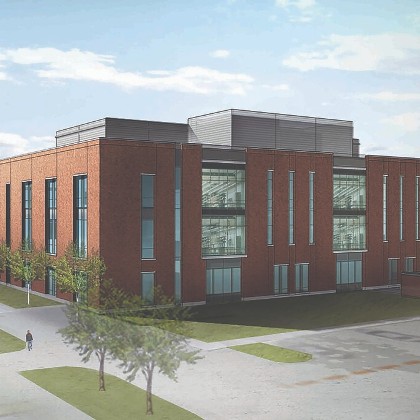Oregon State University faculty win prestigious early-career awards
CORVALLIS, Ore. – Six early-career faculty at Oregon State University have been awarded National Science Foundation grants for exploring a range of topics, from nanomaterials for labeling therapeutic stem cells to non-traditional means of storing energy.
Oregon State researchers receiving NSF Faculty Early Career Development, or CAREER, awards will also study the role of the plant microbiome in plant health, risks posed by natural hazards to the built environment, computational ethics in the design of autonomous systems, and new tools for artificial intelligence.
The OSU honorees are Marilyn Rampersad Mackiewicz of the College of Science, Posy Busby of the College of Agricultural Sciences, and Barbara Simpson, Houssam Abbas, Yue Cao and Xiao Fu of the College of Engineering. They were selected for their “potential to serve as academic role models in research and education and to lead advances in the mission of their department or organization,” according to the NSF, which considers the CAREER awards the most prestigious it bestows in support of early-career faculty.
In addition, Kelsey Stoerzinger of the College of Engineering, who won an NSF CAREER award in 2021, has received a Department of Energy Early Career Research Program grant this year to work toward a deeper understanding of the electrochemical processes used to convert nitrate into ammonia – an important chemical whose current production at industrial scales consumes vast amounts of energy and produces huge volumes of carbon dioxide.
Mackiewicz, assistant professor of chemistry, will use her $558,000 NSF CAREER grant to continue a long-running project that uses innovative biomaterial – nanoparticle-labeled therapeutic stem cells – in ophthalmological research, especially the study of age-related macular degeneration, or AMD.
Considered incurable, AMD results from deterioration in the central part of the retina and is the world’s leading cause of vision loss.
Busby, who was awarded $532,000, will study how changes in leaf traits, such as protective waxes and surface structure, give rise to variation in the composition of the plant microbiome and its functional influence on plants.
Busby, assistant professor of plant pathology, was also awarded a $500,000 CAREER grant from the U.S. Department of Agriculture to look for answers to questions such as: Are beneficial interactions between microbiome and plant the exception or the rule? And how do environmental stressors like heat, drought and disease alter the relationship between a plant and its microbiome?
Simpson, who received $598,000 and is an assistant professor of structural engineering, will use graphics processing units, or GPUs, to build the algorithmic foundations for high-fidelity simulations of complex structural systems at the intersection of the built and natural environments.
The goal is to significantly improve the fundamental understanding of the risks natural hazards pose to the built environment by taking into account critical variables such as soil-structure interaction – often neglected in building design because of high computational costs and physical testing constraints.
Abbas, assistant professor of electrical and computer engineering, was awarded $500,000 to further develop computational ethics as an engineering and scientific discipline related to design of intelligent systems such as autonomous drones and self-driving cars.
If a self-driving car, for example, encounters a situation where it has to choose between crashing into another car or hitting a pedestrian, how does it do so?
Abbas will work toward developing engineering tools to allow system designers to formalize, program and verify the implementation of ethical principles.
Like Abbas, Cao and Fu are assistant professors of electrical and computer engineering and will each receive $500,000.
Cao will use his award to study the use of often overlooked “virtual” energy storage systems, such as HVAC components or water heaters, as a means of reducing the need for grid power.
He refers to those systems as “virtual” because storing energy is not their primary purpose, as it is for batteries and fuel cells, but they have storage ability because they consume electricity and are tied to the grid or other energy resources.
Fu will use his grant to try to improve unsupervised machine learning and sensing systems by developing new factor analysis tools, the cornerstones of many sensing and learning applications.
He hopes to reverse engineer the data generating/acquisition process with the goal of having machine learning and sensing algorithms being able to recognize and categorize unlabeled data — images of dogs, for instance — without being trained to do so through exposure to a huge archive of images labeled as dogs. The key is getting the algorithms to identify and interpret essential factors hidden within the data.
Stoerzinger will use her $750,000 award from the Department of Energy to design and test catalysts for the electrochemical production of ammonia, one of the world’s most widely used chemicals, from nitrate, a harmful component of untreated wastewater and agricultural runoff.
Stoerzinger, an assistant professor of chemical engineering, will focus on catalytic materials made from abundant elements like nickel, iron and cobalt because precious metal catalysts, while potentially useful, are too expensive for large-scale production.













